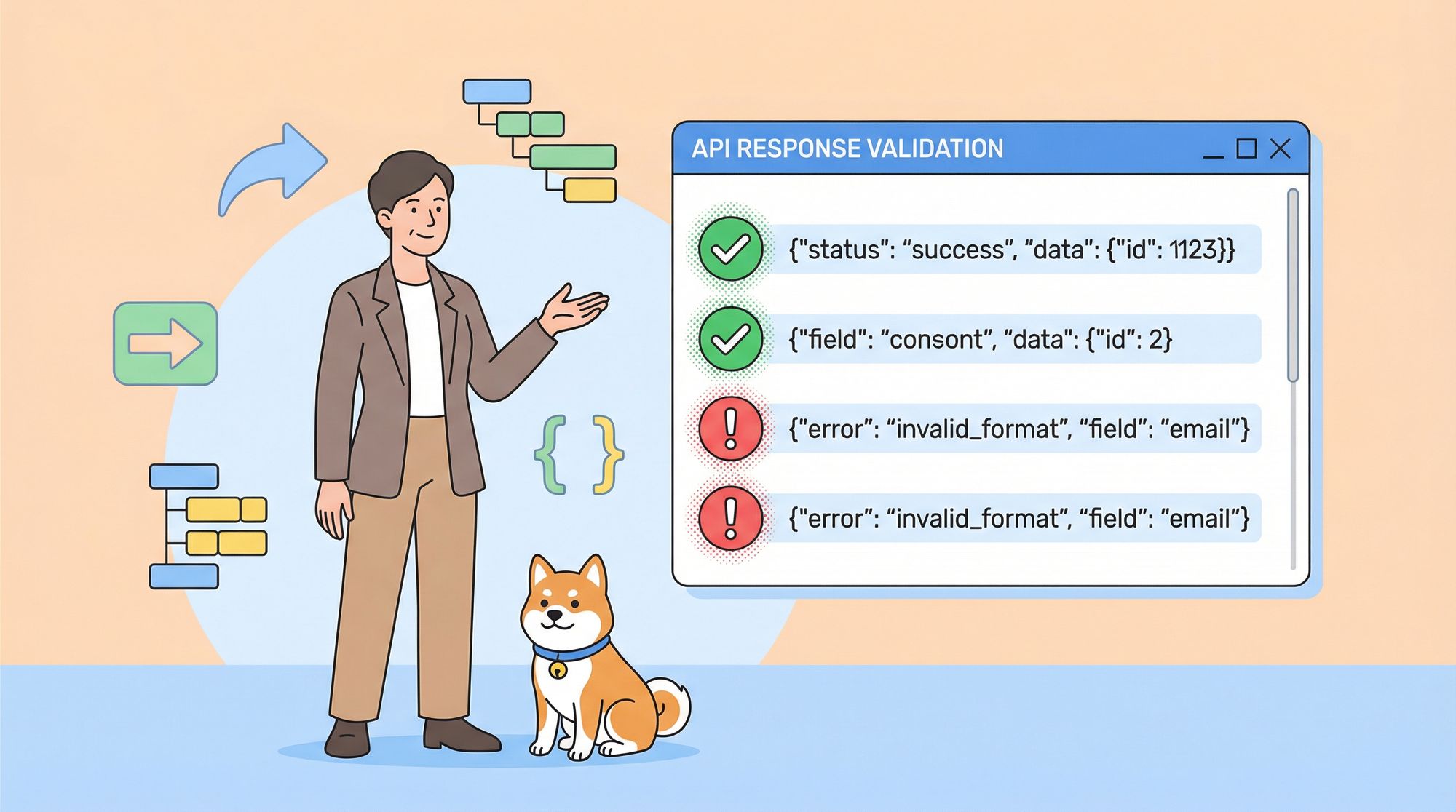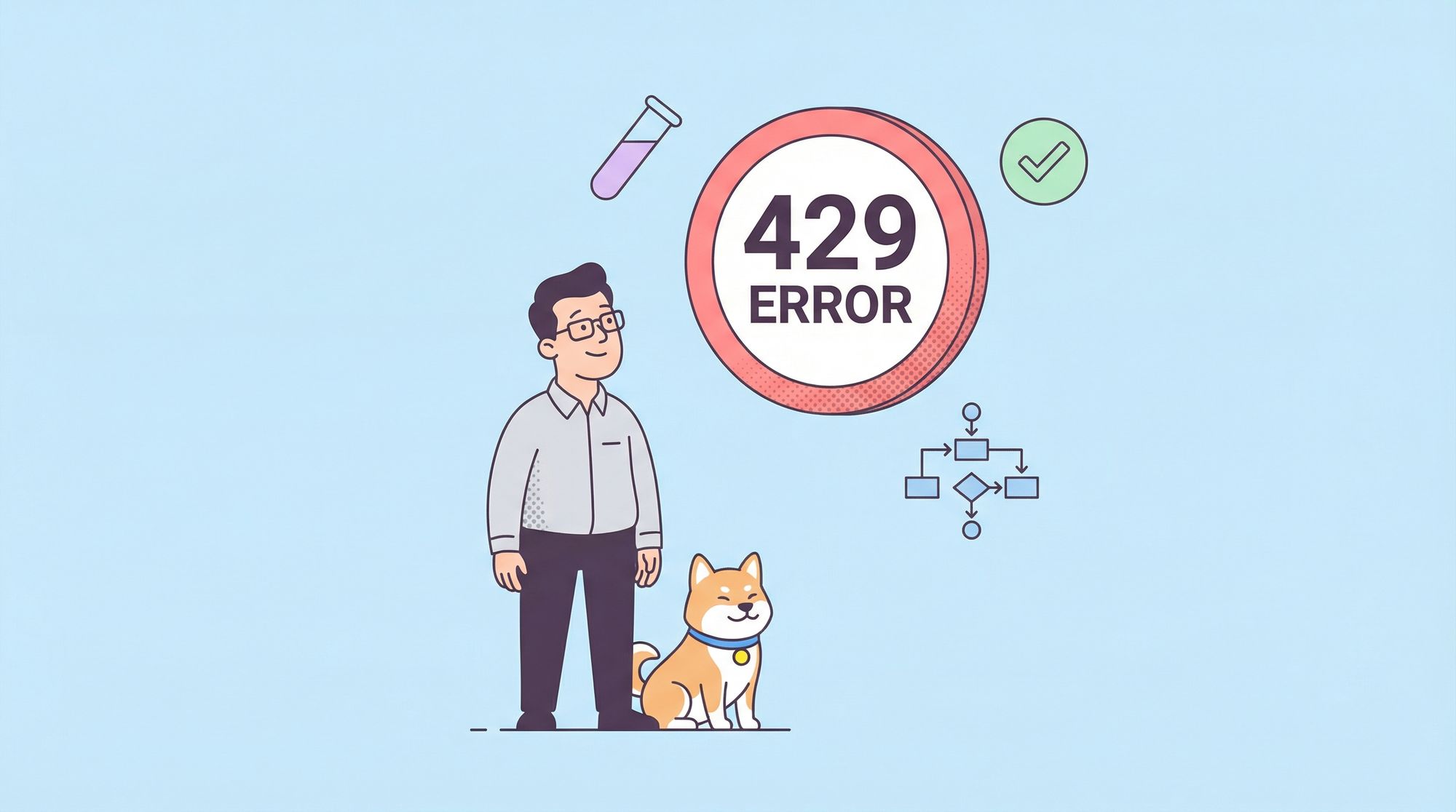In the digital landscape, APIs are essential tools that allow different software systems to communicate and share data seamlessly. Validating API response data automatically is a critical step in ensuring that data exchanged between systems remains accurate, consistent, and secure. This guide explores the importance of API response validation, common challenges, and how to streamline this process using Apidog’s automated validation features. Whether for enhancing data quality or reducing errors, automated validation offers a modern solution to handle the growing complexity of APIs.
What is API Response Validation?
API response validation is the process of verifying that the data returned from an API aligns with expected formats, data types, and business rules. Effective API response validation prevents errors in application functionality, keeps data integrity intact, and ensures compatibility across different platforms and devices. When validation is automated, it reduces manual testing and allows developers to focus on core tasks while ensuring the API’s response consistently meets expected standards.
Why Is API Response Validation Important?
Validating API responses is essential for the following reasons:
- Consistency: Automated validation ensures that APIs return data in a consistent format, minimizing discrepancies.
- Accuracy: By checking response accuracy, developers can catch data errors early, reducing downstream issues.
- Security: Proper validation prevents unauthorized access and detects unusual response patterns, maintaining data security.
Why Consistent Data Matters for APIs?
Data consistency in API responses is crucial for both user experience and backend functionality. When an API consistently delivers accurate data, applications function smoothly, end-users face fewer errors, and developers can easily track and resolve issues. Without consistent data validation, unpredictable responses can disrupt application workflows, trigger security vulnerabilities, and create data discrepancies.
Key Challenges in Maintaining Data Consistency
- Schema Changes: If an API’s data schema evolves over time without validation, applications can encounter unexpected data formats.
- Data Types: Unvalidated responses might contain incorrect data types, leading to compatibility issues and processing errors.
- Unexpected Errors: Without validation, errors in responses may go undetected, causing malfunctions.
Benefits of Consistent API Response Validation
Automated validation ensures:
- Uniformity in data structure
- Quick detection of mismatches between expected and actual responses
- Reduction in debugging time, making development more efficient
Consistent data validation not only enhances application reliability but also contributes to a seamless user experience.
Apidog Automates API Response Validation
Apidog provides a comprehensive API testing tool that automates response validation, making it easier for developers to ensure data consistency without extensive manual checks. With Apidog, developers can validate API responses in real time, catching any deviations or unexpected data formats immediately.
Key Features of Apidog’s Automated Response Validation
Apidog's API response validation automates the testing process, allowing developers to configure validation rules that suit their API specifications. Some of the main features include:
- Real-Time Validation: Apidog performs validation checks as soon as a response is received, allowing instant feedback on data structure, types, and values.
- Custom Validation Rules: Users can define custom rules, such as checking for specific JSON fields, setting data types, and ensuring values fall within predefined ranges.
- Error Handling and Reporting: Apidog highlights mismatches and errors directly in the response, enabling developers to pinpoint and resolve issues swiftly.
- Mock Data Generation: Apidog can create mock data that mimics API responses, allowing for testing before real data is available.
- Schema and Value Validation: Apidog verifies both schema structure and data values, ensuring every aspect of the response aligns with the expected format.
Example: Using Apidog for Automated API Response Validation
With Apidog’s real-time validation, let’s look at a quick example to illustrate its capabilities:
- Define a Data Schema: Start by setting expected fields and data types for endpoint response params in Apidog.
- Configure API Response Validation Rules: Specify API response validation rules, such as response fields, nested object structures, and value constraints.
- Test and Review: Send an API request and immediately see any discrepancies flagged by Apidog’s validation tool.

With Apidog, the setup is straightforward, and the tool actively assists in maintaining API quality.
Troubleshooting Common API Validation Errors
Despite thorough planning, errors can still occur during API response validation. Apidog’s robust validation features help tackle these issues efficiently, but understanding the common errors and solutions is essential.
Common Validation Errors and Solutions
Data Type Mismatches: One of the most frequent issues, where the returned data does not match the expected type.
- Solution: Use Apidog’s data type validation to ensure each field has the correct type (e.g., string, integer).
Missing or Unexpected Fields: Sometimes, responses may lack required fields or include unnecessary ones.
- Solution: Apidog allows the setting of mandatory fields. The tool can flag responses missing these fields as errors.
Incorrect Value Ranges: API responses may contain values outside the expected range, leading to issues in data interpretation.
- Solution: Define value ranges within Apidog. If a response falls outside these ranges, Apidog will mark it as an error.
Schema Structure Variations: APIs may alter their schema over time, leading to mismatches if the application is not updated.
- Solution: Regularly update schema definitions in Apidog to ensure validations align with current API standards.
By identifying and resolving these issues early, developers can prevent small errors from snowballing into larger, more complex problems.
Advantages of Using Apidog for Error Troubleshooting
- Quick Detection: Apidog’s real-time validation instantly alerts users to errors, minimizing time spent on debugging.
- Detailed Error Logs: Each error is logged with a clear message, providing context for swift fixes.
- Customizable Alerts: Apidog allows users to set up custom alerts for critical issues, ensuring no error goes unnoticed.
Conclusion: Enhancing API Quality with Automated Response Validation
Automating API response validation is indispensable for developers seeking to maintain high standards of data accuracy, security, and consistency. Tools like Apidog simplify this process by providing customizable, real-time validation that aligns with project specifications. By reducing manual testing, Apidog enables developers to focus on creating robust and efficient applications.
With Apidog, developers benefit from:
- Consistent, accurate data exchange between APIs and applications
- Reduced error rates and streamlined debugging
- Comprehensive tools for both standard and complex validation scenarios
Automated validation through Apidog can significantly enhance the reliability and efficiency of API-dependent applications, empowering teams to deliver high-quality software more confidently.



